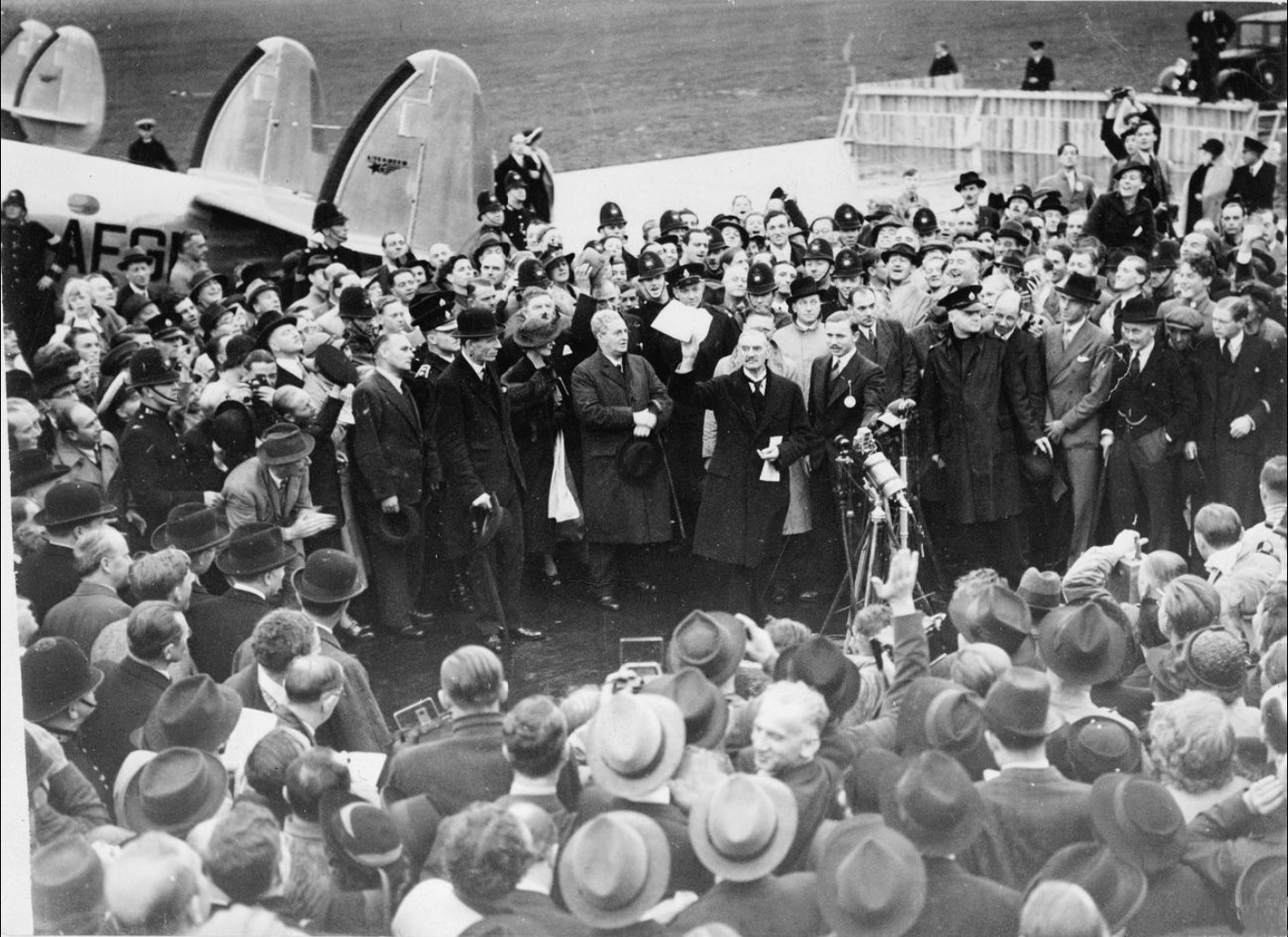The Czechoslovak republic was the only state in central or eastern Europe where parliamentary democracy had succeeded after World War I. It had inherited some of the most highly developed industrial regions of the old Habsburg Empire; consequently, its economy was far better balanced between industry and agriculture than were those of the other states of eastern Europe.
This healthy economy was mirrored in the social structure, where a working balance was maintained among peasants, middle classes, and industrial workers. But the Czech government could not keep the country from ultimately being destroyed by outside pressures working on its sensitive minorities. The Sudeten German minority of 3.25 million looked down on the Slavic Czechs and resisted the new republic. From 1933 on, Nazi agitation became increasingly serious in Czechoslovakia.
Early in 1938, having secured Austria, Hitler made demands on the Prague government for what amounted to complete Sudeten autonomy. On September 12 he made a violent speech at Nuremberg, insisting on self-determination for the Sudeten Germans. This was the signal for widespread disorders in Czechoslovakia, followed by the proclamation of martial law by the government of Eduard Bend (1887-1948).
Chamberlain made two preliminary visits to Hitler in Germany in an effort to moderate German demands. Finally, with the help of Mussolini, he persuaded Hitler to call a full conference of the four great Western powers. Hitler, Mussolini, Chamberlain, and Daladier of France met in Munich on September 29, 1938.
Munich was a sweeping victory for Hitler. Czechoslovakia was partially dismembered; its Sudeten borderlands were turned over to Germany; the Czechs were obliged to hand over Teschen and other areas to the Poles; their entire economy and transportation system were weakened; the defense of their frontiers was made impossible by the loss of the border mountains and their fortifications. Slovakia was given autonomy within a federal state, emphasized by the official change in spelling from Czechoslovakia to Czecho-Slovakia.
The Czech leaders had found it impossible to resist the Germans without French and British aid, and their people acquiesced bitterly in the settlement of Munich. The Germans had played skillfully on the differences between the more industrialized Czechs and the still largely agricultural Slovaks.
But even had the country been strongly united, Munich would have ruined its morale. Hitler acted quickly. In March 1939 Hitler sent his army into Prague and took over the remaining Czech lands, meeting no real resistance. Hungary, anxious to reclaim some of its lost territory, occupied Ruthenia, the easternmost province of Czechoslovakia, with German consent.
The best defense that can be made for Munich and appeasement is that the West was either genuinely trying to avoid war or that it was buying time to prepare for a war that it knew to be inevitable but for which it was not yet ready. In September 1938 the democracies were in a stronger military position relative to that of Germany than they would be in September 1939. It also seems likely that Chamberlain and Daladier, as well as millions all over the world, hoped that the acquisition of the Sudeten Germans would satisfy Hitler.
Some Westerners even hoped that Hitler might join with them against communist Russia, or get himself so entangled in eastern Europe that he would bring on a Russo-German war. Hitler’s words and deeds, however, had given no real basis for such hopes. As early as November 1937 he had announced to his close advisers his unalterable intention of destroying Czechoslovakia and moving on into Poland and the Ukraine.
The actual destruction of Czechoslovakia in March 1939 seems not to have surprised anyone. But the mixture of resignation, condemnation, and resolution with which this action was greeted in the West marks a turning point. The days of appeasement were over, as Britain and France made clear their intentions to guarantee the borders of Poland, and Britain started a peacetime draft. Nazi leaders made no secret of their feeling that the British and French were decadent, inefficient, and too cowardly to resist an inspired and rejuvenated Germany.
Yet there is evidence that Hitler expected at least a local war with Poland, and that he was quite prepared to confront the French and the British if need be. Hitler had strengthened his system on May 22 by concluding an offensive-defensive “Pact of Steel” with Mussolini, who only six weeks before had conquered Albania. Both nations obviously intended further aggression.

